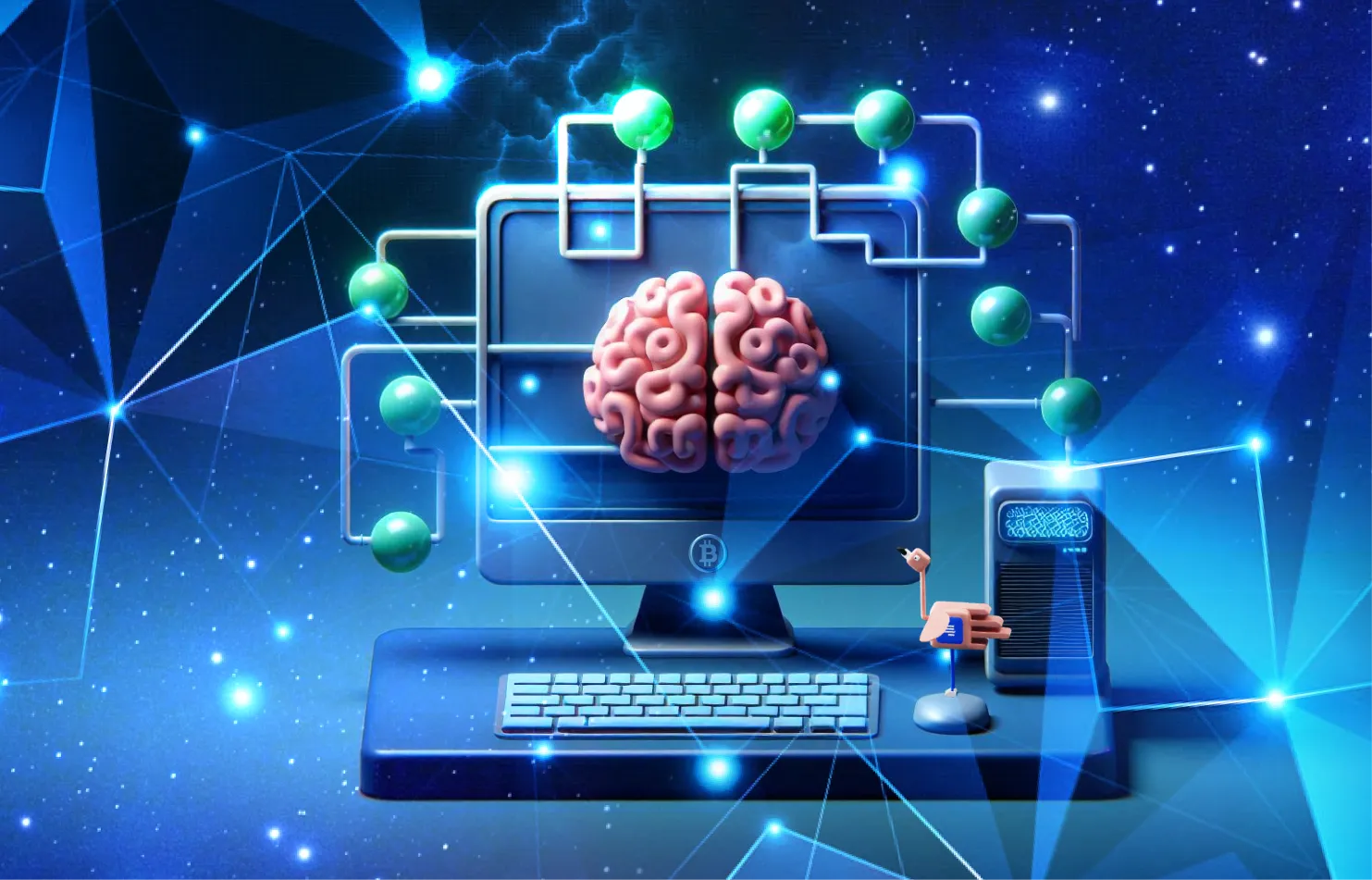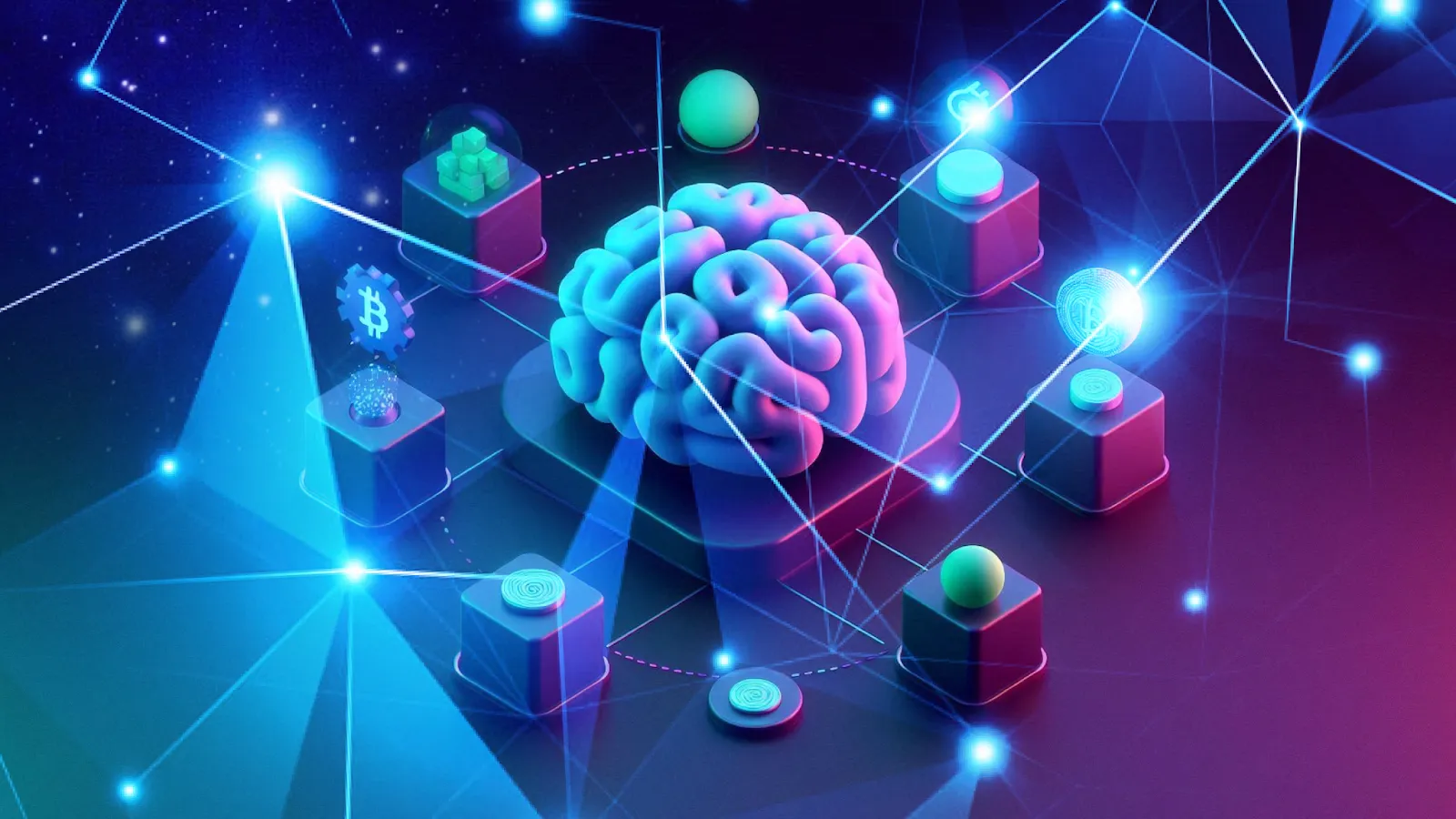
The potential of integrating AI with smart contracts to enable dynamic, real-time decision-making.
Smart contracts, as self-executing digital agreements running on blockchain networks, have transformed how businesses establish and enforce trust. Yet, traditional smart contracts often remain limited by rigid code and predetermined conditions. As the market matures, the next generation—Smart Contracts 2.0—introduces AI-powered smart contracts that leverage machine learning models, predictive analytics, and natural language processing to enable more dynamic, intelligent, and adaptive contract execution. By integrating AI into these automated systems, enterprises can streamline operations, enhance decision-making processes, and achieve unprecedented levels of blockchain automation in real-time.
While traditional smart contracts have made transactions more secure, transparent, and efficient than ever before, their capabilities remain restricted by code that cannot easily evolve or adapt. Currently, these contracts operate on the premise of static conditions defined at deployment, relying on inputs that are predetermined or strictly limited. This inflexibility inhibits the seamless integration of external data sources—such as real-time market prices, regulatory updates, or user behavior metrics—and prevents the contracts from adjusting their logic on-the-fly.
Because conventional smart contracts lack the mechanisms to interpret nuanced data or respond dynamically to changing contexts, they often fail to capture the complexity of real-world scenarios. For example, when supply chain bottlenecks occur unexpectedly, or when financial markets experience sudden volatility, traditional contracts are unable to update terms, recalculate obligations, or refine dispute resolutions in a timely manner. Similarly, they cannot automatically comply with evolving legal standards or incorporate the subtleties found in natural language documents.
This inherent rigidity not only limits the scalability and usability of these agreements but also impedes the broader vision of frictionless blockchain automation. Without the ability to integrate real-time analytics, evolving user demands, and newly available datasets, traditional smart contracts remain stuck at a baseline level of functionality—delivering trust but lacking the intelligence and adaptability required to power more complex, data-driven business ecosystems.
Integrating AI into smart contracts transforms their capabilities, enabling them to make predictive, data-driven decisions and adapt to real-time changes. Machine learning models play a pivotal role by analyzing historical data to anticipate outcomes, optimize contract execution, and refine conditions over time. For instance, predictive analytics can help determine the likelihood of market fluctuations, enabling contracts to adjust terms proactively rather than reactively.
Natural Language Processing (NLP) further enhances these contracts by allowing them to interpret and extract meaning from unstructured data, such as legal documents or user input. This capability bridges the gap between rigid coding and the fluidity of human language, making smart contracts more versatile in handling complex agreements.
Additionally, reinforcement learning introduces a mechanism for continuous improvement, where contracts learn from past executions to optimize future performance. Over time, this allows contracts to fine-tune their logic, ensuring more accurate and fair outcomes.
By incorporating these AI-driven enhancements, Smart Contracts 2.0 not only automate but also intelligently adapt to complex and dynamic environments, setting a new standard for blockchain-enabled automation.
AI-powered smart contracts leverage off-chain data oracles, IoT sensors, and other reliable data feeds to dynamically adjust their terms based on real-time information. Instead of relying on static inputs, these intelligent contracts continuously monitor factors like market prices, regulatory changes, or environmental conditions. As shifts occur—such as fluctuating token values, sudden supply chain disruptions, or new compliance requirements—these enhanced agreements automatically recalibrate their parameters to maintain fairness and accuracy.
For example, an AI-driven lending contract can adjust interest rates in response to ongoing market volatility, offering more competitive terms and mitigating risk for both borrowers and lenders. Similarly, a supply chain contract can tap into IoT sensor data to verify product quality conditions as they evolve, instantly updating penalties or bonuses when thresholds are met or exceeded. By delivering adaptive, data-driven responses in real-time, Smart Contracts 2.0 maximize efficiency, transparency, and trust, ushering in a new era of blockchain automation.
While AI-driven smart contracts introduce dynamic adaptability and predictive decision-making, ensuring their security and regulatory compliance is paramount. One critical aspect involves safeguarding AI models against tampering or unauthorized modifications. For instance, secure cryptographic hashing and decentralized storage can help preserve model integrity, guaranteeing that all parties trust the contract’s underlying decision logic.
Compliance checks must also evolve alongside shifting legal landscapes. AI-powered contracts can incorporate rule sets that dynamically reference updated regulatory frameworks, automatically ensuring adherence to the latest industry standards. From identifying illicit activities to tracking cross-border transactions, integrated compliance mechanisms can mitigate risks and improve confidence among stakeholders.
Finally, secure model deployment and continuous auditing are essential to maintaining trust. Periodic third-party verifications, tamper-evident logs, and secure enclaves for model execution help keep the system transparent and fraud-resistant. With these measures in place, Smart Contracts 2.0 achieve the delicate balance between innovation, accountability, and unwavering commitment to security.

The power of AI-driven smart contracts extends across a wide array of sectors. In supply chain management, these contracts can leverage IoT sensor data to autonomously verify product quality, authenticate sources, and trigger automated payments when conditions are met. This real-time responsiveness promotes greater efficiency, reduces waste, and enhances trust throughout global logistics networks.
In the insurance industry, AI-powered contracts can streamline claims processing by interpreting policy language, verifying submitted evidence, and releasing payouts automatically upon validated events. Decentralized Finance (DeFi) protocols also benefit from continuous market analysis, enabling real-time adjustments to lending rates, collateral requirements, or risk parameters.
For complex negotiations and contract settlements, Smart Contracts 2.0 enable more flexible terms and conditions that evolve in tandem with shifting data inputs, reducing bottlenecks and accelerating deal closures. Additionally, intelligent dispute resolution mechanisms can interpret contextual details—such as communication logs or compliance reports—to settle conflicts swiftly and impartially. These use cases collectively illustrate the transformative potential of AI-enhanced smart contracts, paving the way for more adaptive, data-driven business ecosystems.
While the potential of AI-powered smart contracts is immense, several hurdles must be addressed before widespread adoption can occur. Technical complexity presents a formidable challenge: integrating machine learning models into existing blockchain infrastructures requires specialized expertise, additional computational resources, and secure off-chain data pipelines. Interoperability concerns also arise, as different blockchains, oracle networks, and AI tools must seamlessly align for smooth contract execution.
Cost is another factor. Running sophisticated models and continuously sourcing real-time data can introduce significant overhead, making it essential to refine scaling solutions and optimize resource utilization. In addition, ongoing research in AI is needed to improve model accuracy, fairness, and robustness, ensuring that contracts make reliable decisions even in unpredictable environments.
Looking ahead, advancements in blockchain technology—such as higher throughput, more efficient consensus algorithms, and improved layer-two solutions—will help support the integration of complex AI workloads. As both AI and blockchain communities innovate, Smart Contracts 2.0 will evolve into autonomous, trustless ecosystems capable of driving frictionless commerce, more inclusive financial systems, and sustainable growth across a wide range of industries.
